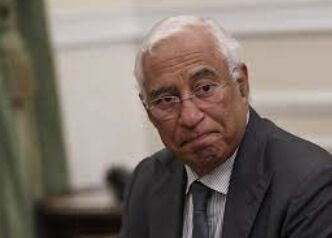Portugal's Prime Minister Resigns Amid Corruption Probe, President Calls for Snap Election to Restore Trust
Portugal's President, Marcelo Rebelo de Sousa, has dissolved parliament and called for a snap election following Prime Minister Antonio Costa's resignation over corruption allegations. The election will allow the Socialist Party to find a successor to Costa and address the ongoing investigation.
Portugal's President, Marcelo Rebelo de Sousa, has dissolved parliament and called for a snap election on March 10 following the resignation of Prime Minister Antonio Costa over a corruption investigation. Costa, who has been in office since 2015, stepped down after being implicated in a corruption probe related to energy contracts. President Rebelo de Sousa made the decision to dissolve parliament after consulting with political party leaders and considering the option of appointing a new prime minister.
Portugal's Prime Minister, António Costa, has been forced to resign following searches at his official residence as part of a corruption investigation linked to the Montalegre lithium exploration case.
— Bruce Porter Jr. (@NetworksManager) November 7, 2023
This marks the culmination of a tumultuous few years for him. pic.twitter.com/pQdcZKDl7K
The announcement of the snap election will allow the Socialist Party to find a successor to Costa and address the corruption allegations. The probe revolves around allegations of improper behavior in the development of lithium mining and hydrogen projects in the country. Costa's chief of staff, Vitor Escaria, was arrested in connection with the investigation, along with other individuals involved in the projects. President Rebelo de Sousa expressed his trust in the justice system and stated that if there are suspicions, the authorities are free to investigate.
The Prime Minister has maintained his innocence and insists that he has done nothing illegal. However, with the ongoing investigation and the arrest of key personnel, Costa felt it was appropriate to resign from his position. The dissolution of parliament and the upcoming election will provide an opportunity for the Socialist Party to regroup, find a new leader, and address the corruption allegations.
Holding the election in March allows for sufficient time to strategize and present a successor to Costa. This period will also allow for the passage of the 2024 budget, which includes tax cuts for the middle class and increased spending on social programs. The decision to dissolve parliament and hold a snap election reflects the President's commitment to democracy and ensuring the legitimacy of the government. The election will provide an opportunity for the Portuguese people to voice their opinions and elect a new government that can address the corruption allegations and continue the country's progress.




